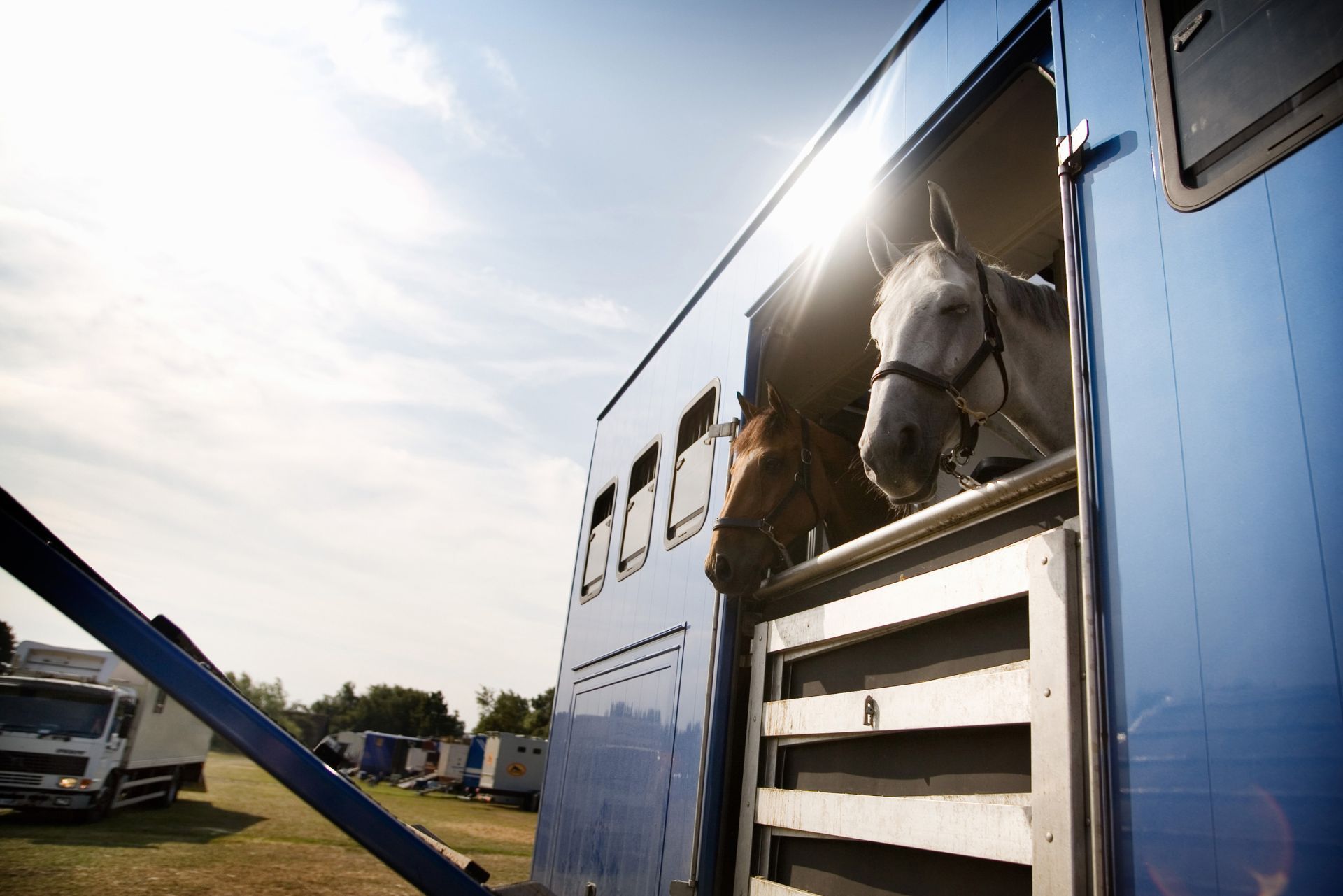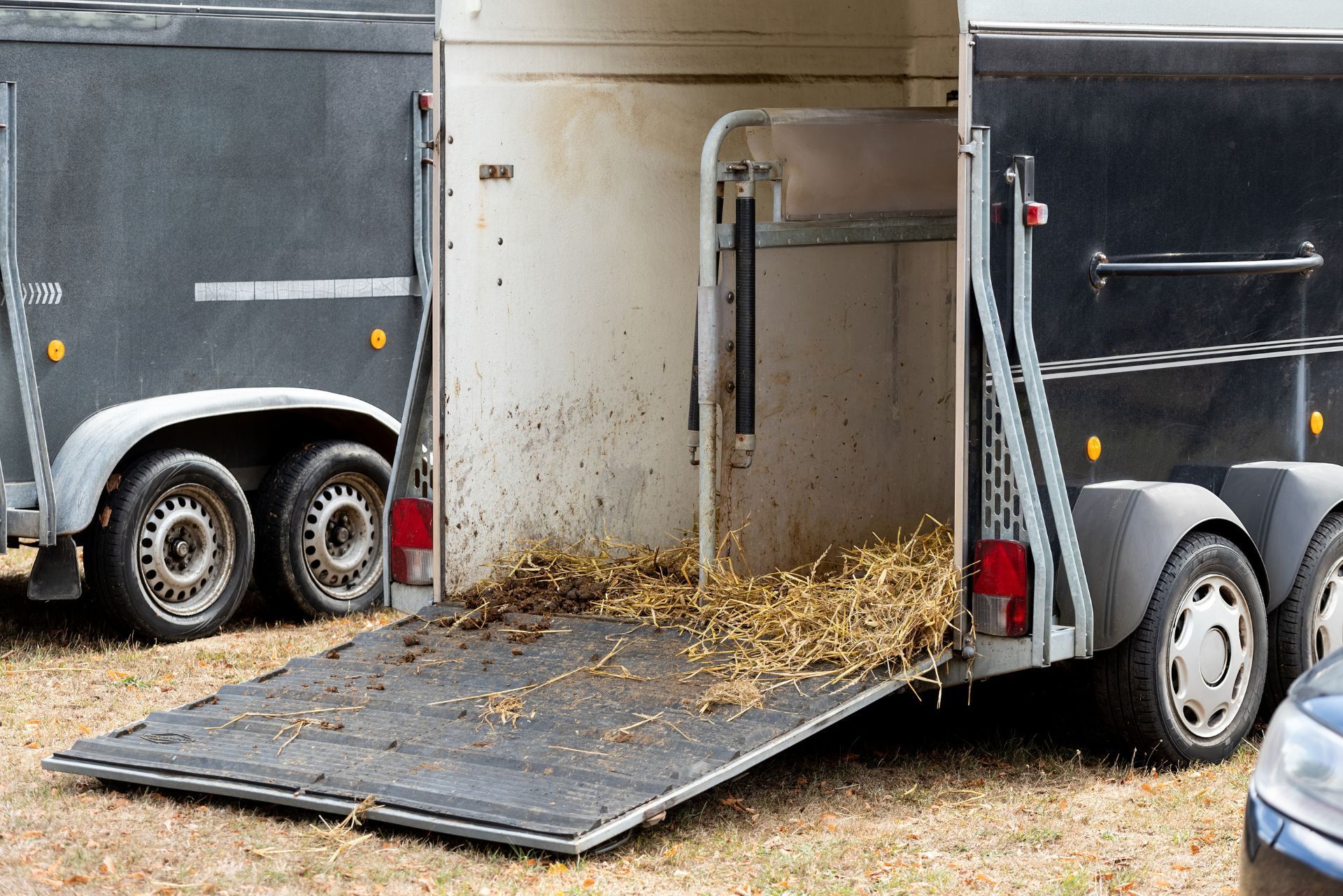
Top 3 Recommended Policies

Owning a horse trailer in Texas can be a rewarding experience, especially for those who love equestrian activities. However, it is essential to understand the importance of insuring your horse trailer. This article will delve into the various aspects of Texas horse trailer insurance, including types of coverage, factors that influence insurance rates, and tips for finding the best policy.
Understanding Horse Trailer Insurance
Horse trailer insurance is designed to protect your investment while ensuring that you are covered in case of accidents or damages. It is crucial for horse owners who frequently transport their horses, as it provides peace of mind during travels. Whether you are heading to a local show, a veterinary appointment, or a long-distance competition, having the right insurance can make all the difference in safeguarding both your trailer and your beloved animals.
In addition to covering the physical aspects of your trailer, horse trailer insurance can also extend to the contents within it. This means that if you have saddles, bridles, or other equipment stored in your trailer, you may be able to insure those items as well. This added layer of protection is particularly valuable for equestrians who invest significantly in their gear, as the cost of replacement can be substantial. Furthermore, some policies may even offer coverage for the horses themselves while they are being transported, ensuring that you are financially protected in the unfortunate event of an accident.
What Does Horse Trailer Insurance Cover?
Typically, horse trailer insurance covers a range of incidents, including:
- Collision Damage: This coverage pays for repairs to your trailer if it is damaged in an accident.
- Theft: If your trailer is stolen, this insurance can help you recover the loss.
- Vandalism: Protection against intentional damage caused by others is also included.
- Liability Coverage: This protects you in case you are found responsible for damages or injuries to others while using your trailer.
Additionally, many insurance policies may offer roadside assistance, which can be a lifesaver in emergency situations. If you experience a breakdown or flat tire while on the road, having access to a 24/7 roadside assistance service can help you get back on your way quickly and safely. Some policies might also include coverage for rental reimbursement, allowing you to rent a replacement trailer if yours is being repaired after an incident, ensuring that your horse transportation needs are met without interruption.
Types of Horse Trailer Insurance Policies
There are generally two types of insurance policies available for horse trailers:
- Comprehensive Coverage: This policy covers a wide range of risks, including theft, vandalism, and natural disasters.
- Liability Coverage: This is more focused on protecting you from legal claims arising from accidents involving your trailer.
When selecting the right policy, it is essential to evaluate your specific needs and the frequency with which you use your trailer. For instance, if you frequently travel long distances or participate in events, comprehensive coverage may be more beneficial. On the other hand, if your trailer is primarily used for local trips, a liability-focused policy might suffice. Consulting with an insurance agent who specializes in equine-related coverage can help you navigate the options available and tailor a policy that best fits your lifestyle and requirements.

Why Is Insurance Necessary?
Insurance is not just a legal requirement; it is a financial safeguard. Without proper coverage, the costs associated with accidents, theft, or damages can be overwhelming. In Texas, where horse ownership and transportation are prevalent, having insurance can prevent significant financial loss. The unpredictable nature of equine activities, from competitions to trail rides, makes it essential to have a safety net in place. An unexpected accident can lead to costly veterinary bills, property damage, or even liability claims, which can quickly spiral out of control without adequate insurance.
Legal Requirements in Texas
While Texas does not mandate horse trailer insurance, it is highly recommended. However, if you are towing your trailer with a vehicle, the vehicle must have liability insurance. Additionally, some lenders may require insurance if you financed your trailer purchase. Understanding the specific legalities surrounding insurance can help horse owners make informed decisions. For instance, if you are involved in an accident while towing a trailer without proper insurance, you could face legal repercussions, including fines and the potential loss of your vehicle. Therefore, it is wise to consult with an insurance professional to ensure you meet all necessary requirements and have adequate coverage.
Peace of Mind
Having insurance provides peace of mind. Whether you are traveling across the state for a competition or a leisurely ride, knowing that you are covered in case of an incident allows you to focus on enjoying your time with your horses. The emotional and financial burdens of an accident can be daunting, but with the right insurance policy, you can rest easy knowing that you are protected. This peace of mind extends beyond just the act of riding; it encompasses the entire experience of horse ownership, from training sessions to transporting your equine companions. Additionally, many insurance policies offer coverage for equine-related liabilities, which can be particularly beneficial in case of injuries to others or damage to property during events, further enhancing your ability to enjoy your passion without worry.
Factors Influencing Insurance Rates
Several factors can affect the cost of horse trailer insurance in Texas. Understanding these can help you find the best policy for your needs and budget.
Type of Trailer
The type of horse trailer you own plays a significant role in determining your insurance premium. For instance, a larger, more expensive trailer will typically cost more to insure than a smaller, basic model. Additionally, trailers with advanced safety features may qualify for discounts. Features such as anti-lock brakes, reinforced frames, and built-in GPS tracking systems not only enhance safety but can also lead to significant savings on your insurance costs. Furthermore, the materials used in the trailer's construction can influence rates; trailers made from lightweight yet durable materials may be viewed more favorably by insurers.
Your Driving Record
Your driving history is another critical factor. A clean driving record with no accidents or violations can result in lower premiums, while a history of accidents may lead to higher rates. Insurance companies assess risk based on your past behavior, so maintaining a good driving record is beneficial. Additionally, completing a defensive driving course can sometimes help reduce your premium, as it demonstrates your commitment to safe driving practices. Regularly reviewing your driving habits and making adjustments where necessary can also contribute to a better insurance rate over time.
Location
Where you live in Texas can also impact your insurance rates. Areas with higher crime rates or more frequent accidents may result in higher premiums. Conversely, living in a rural area with lower traffic can lead to reduced rates. Moreover, local weather patterns can play a role; regions prone to severe storms or flooding may see higher premiums due to the increased risk of damage. It's also worth noting that proximity to veterinary services and equestrian facilities can influence your rates, as insurers may consider the availability of resources in the event of an emergency. Understanding the nuances of your location can help you make informed decisions when shopping for insurance.
How to Choose the Right Insurance Policy
Choosing the right horse trailer insurance policy requires careful consideration of your needs and circumstances. Here are some steps to guide you through the process.
Assess Your Coverage Needs
Consider how often you use your trailer and the value of the trailer itself. If you frequently transport high-value horses, comprehensive coverage may be necessary. On the other hand, if you use your trailer infrequently, a basic liability policy might suffice. Additionally, think about the types of trips you take. Are you heading to local shows, or do you travel long distances for competitions? The risks associated with long-distance travel, such as road hazards and potential accidents, might warrant a more robust policy. Furthermore, consider any additional equipment you may have, such as tack or specialized loading ramps, which could also require coverage.
Shop Around for Quotes
It is advisable to obtain quotes from multiple insurance providers. This allows you to compare coverage options and premiums, helping you find the best deal. Many insurance companies offer online quotes, making the process quick and easy. However, don’t just focus on price; also evaluate the reputation of the insurance companies you are considering. Look for reviews and ratings from other horse owners to gauge their experiences with claims processing and customer service. A slightly higher premium might be worth it if it comes with better support and reliability when you need it most.
Read the Fine Print
Before finalizing a policy, carefully read the terms and conditions. Pay attention to exclusions, deductibles, and coverage limits. Understanding what is and isn’t covered will prevent surprises in the event of a claim. It’s also wise to inquire about any additional coverage options that may be available, such as roadside assistance or coverage for personal belongings inside the trailer. Some policies may offer unique benefits tailored to horse owners, such as coverage for veterinary expenses if your horse is injured during transport. Taking the time to thoroughly understand your policy can save you from unexpected costs and ensure that you have the protection you need while on the road.
Common Exclusions in Horse Trailer Insurance
While horse trailer insurance offers valuable protection, it is essential to be aware of common exclusions that may apply to your policy.
Wear and Tear
Most policies do not cover damages resulting from normal wear and tear. This includes issues like rust, fading paint, or mechanical failures that occur over time. Regular maintenance is crucial to keep your trailer in good condition. It is advisable to perform routine inspections and address minor issues before they escalate into costly repairs. Keeping detailed records of maintenance can also help in demonstrating that you have taken steps to care for your trailer, which may be beneficial if you ever need to file a claim.
Intentional Damage
Insurance will not cover damages that are intentionally inflicted by the owner or someone authorized to use the trailer. This is a standard exclusion in most insurance policies. It is important to remember that acts of vandalism or mischief, even if committed by a friend or family member, can lead to significant out-of-pocket expenses. Always ensure that anyone who uses your trailer understands the importance of treating it with care and respect to avoid any misunderstandings regarding coverage.
Non-Accidental Damage
Incidents such as damage caused by natural disasters, like floods or earthquakes, may not be covered unless you have specific comprehensive coverage. Review your policy to understand what types of natural disasters are included. Additionally, it may be wise to consider purchasing supplemental coverage if you live in an area prone to severe weather events. Understanding the geographical risks associated with your location can help you make informed decisions about the level of coverage you need, ensuring that your investment in your horse trailer is adequately protected against unforeseen circumstances.
Tips for Lowering Your Insurance Premiums
Finding affordable horse trailer insurance is possible with a few strategic steps. Here are some tips to help you lower your premiums.
Bundle Insurance Policies
Many insurance companies offer discounts for bundling policies. If you have other types of insurance, such as auto or home insurance, consider purchasing your horse trailer insurance from the same provider to save money. This not only simplifies your payments by consolidating them into one monthly bill, but it can also enhance your relationship with your insurer, making it easier to negotiate future coverage or claims.
Increase Your Deductible
Choosing a higher deductible can lower your premium. However, be sure to select a deductible that you can comfortably pay out of pocket in case of a claim. It's essential to strike a balance between a manageable deductible and a premium that fits your budget. Additionally, consider how often you use your horse trailer; if you primarily use it for occasional trips, a higher deductible might be a sensible option.
Take Advantage of Discounts
Insurance companies often provide various discounts for factors such as safe driving, completing safety courses, or being a member of an equestrian organization. Inquire about available discounts when shopping for insurance. Some insurers may even offer incentives for installing safety features on your trailer, such as anti-theft devices or improved braking systems, which can further reduce your overall costs. Moreover, maintaining a clean driving record not only benefits your horse trailer insurance but can also positively impact your other insurance policies.
Maintain a Good Credit Score
Your credit score can significantly influence your insurance premiums. Insurers often use credit information to assess the risk of insuring you. By maintaining a good credit score through timely payments and responsible credit use, you may qualify for lower rates. Regularly checking your credit report for errors and addressing any discrepancies can also help you maintain a favorable score, ultimately leading to better insurance rates.
Limit Your Mileage
Another effective way to lower your insurance premiums is to limit the mileage on your horse trailer. Many insurance providers offer lower rates for trailers that are used less frequently. If you can demonstrate that your trailer is primarily used for short, local trips rather than long-distance travel, you may be eligible for a reduced premium. Keeping a log of your trips can help you provide accurate information to your insurer, ensuring you receive the best possible rate based on your usage.

Understanding the Claims Process
Knowing how to navigate the claims process is essential in case you need to file a claim. Here’s a step-by-step guide to help you through the process.
Report the Incident
Immediately after an accident or incident, report it to your insurance company. Provide them with all necessary details, including the time, location, and nature of the incident. If applicable, gather contact information from witnesses.
Document Everything
Take photos of the damage and keep records of any related expenses. This documentation will be crucial when filing your claim and can help expedite the process.
Follow Up
After filing your claim, stay in contact with your insurance adjuster. They may require additional information or documentation, so being proactive can help ensure a smoother claims process.
Conclusion
Texas horse trailer insurance is an essential aspect of owning and operating a horse trailer. Understanding the types of coverage available, the factors influencing insurance rates, and the claims process can help horse owners make informed decisions. By taking the time to shop around, assess coverage needs, and understand policy exclusions, owners can find the right insurance to protect their investment. Ultimately, having the right insurance allows horse owners to enjoy their passion for equestrian activities with confidence and peace of mind.
Contact Us

